IOM Report: Analyzing Recommendations for Progressive Nursing Future
VerifiedAdded on 2023/05/27
|5
|857
|149
Report
AI Summary
This report provides an analysis of the Institute of Medicine's (IOM) report, which details recommendations for progressive planning in the nursing profession to address challenges in the dynamic healthcare landscape. It emphasizes the need for higher education and training for nurses to improve patient outcomes and reduce costs, advocating for nurses to take on leadership roles and become vital healthcare policymakers. The analysis focuses on key recommendations, including increasing the proportion of nurses with baccalaureate degrees to 80% by 2020 and doubling the number of nurses with doctorates by the same year. The report also highlights the importance of lifelong learning and continuous education for nurses to stay updated with emerging knowledge and advances in healthcare systems. Furthermore, it discusses the benefits of higher education, such as increased competitiveness in the job market and the ability to pursue leadership roles, ultimately contributing to the transformation of the healthcare system. The author commits to pursuing a baccalaureate degree and a doctorate in nursing, aiming to lead reforms and improve patient outcomes while also addressing the challenges of Ph.D. program accessibility.
1 out of 5
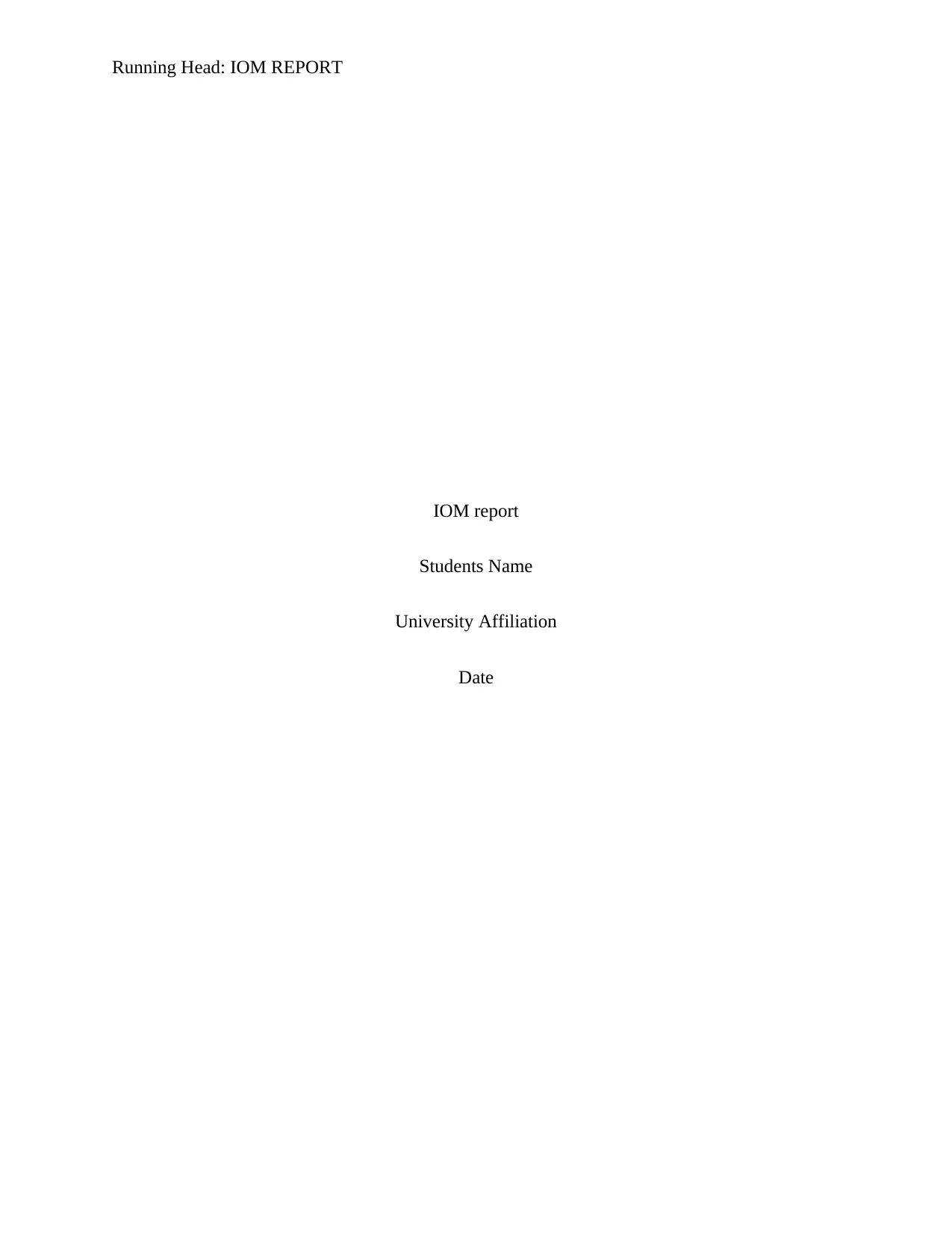
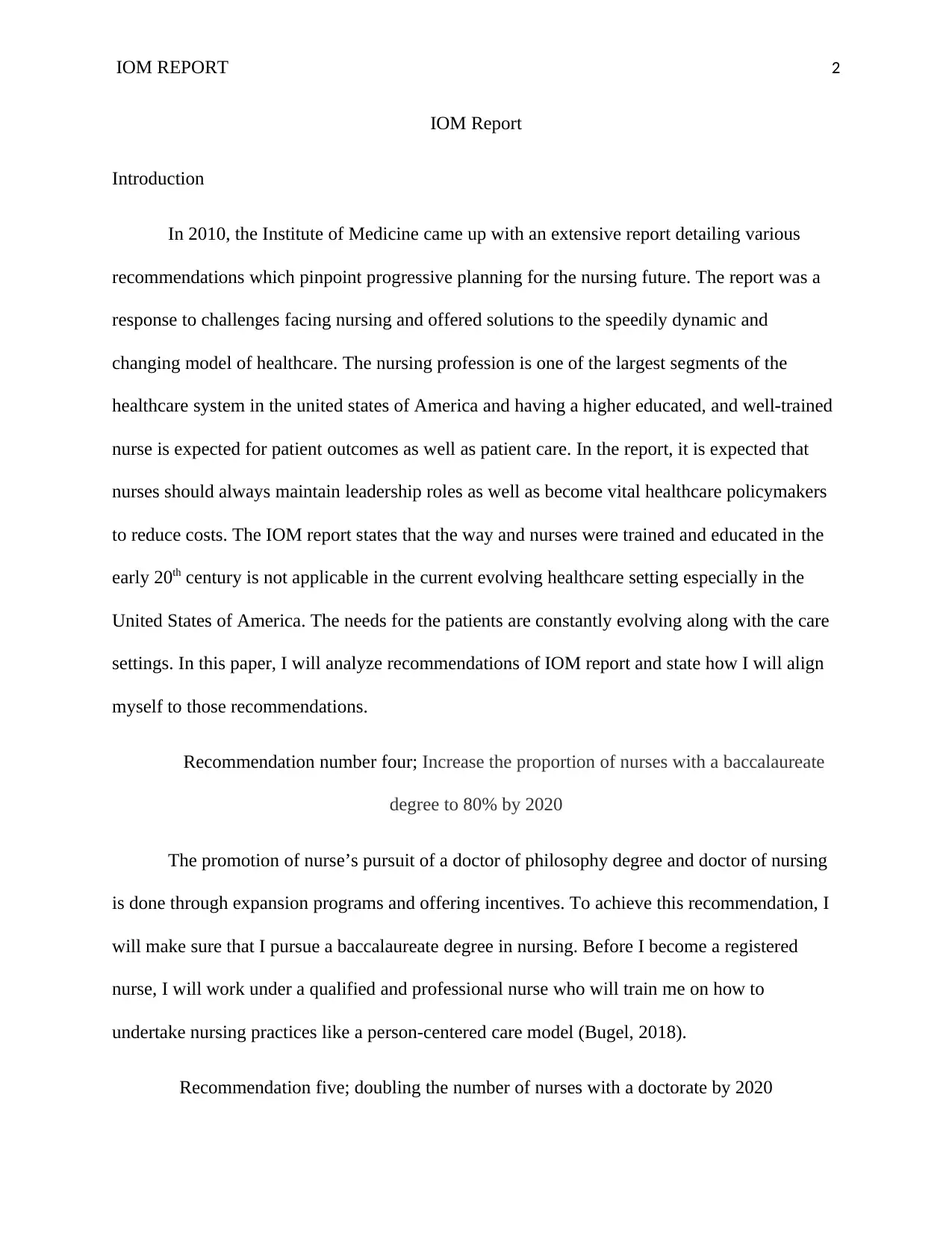
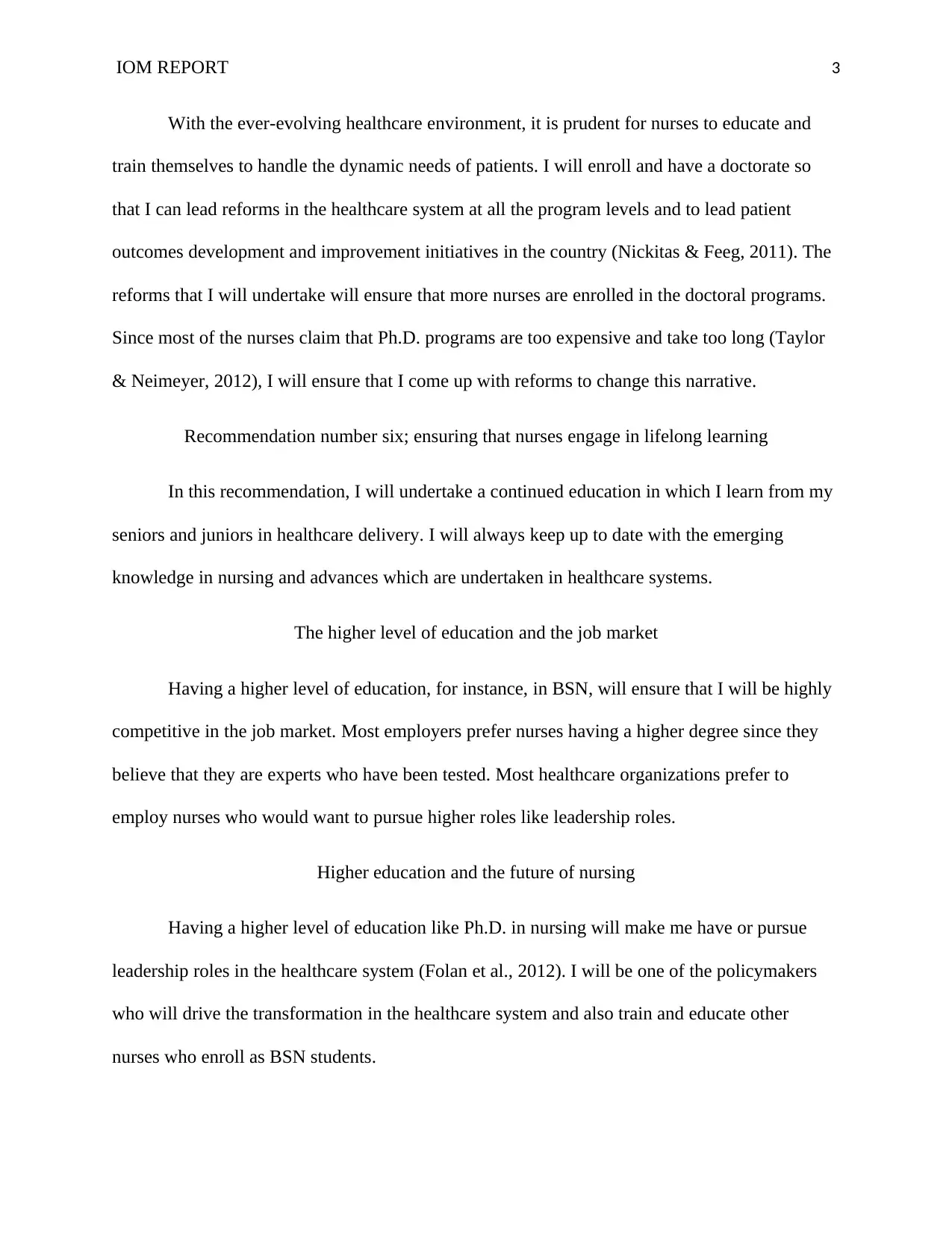

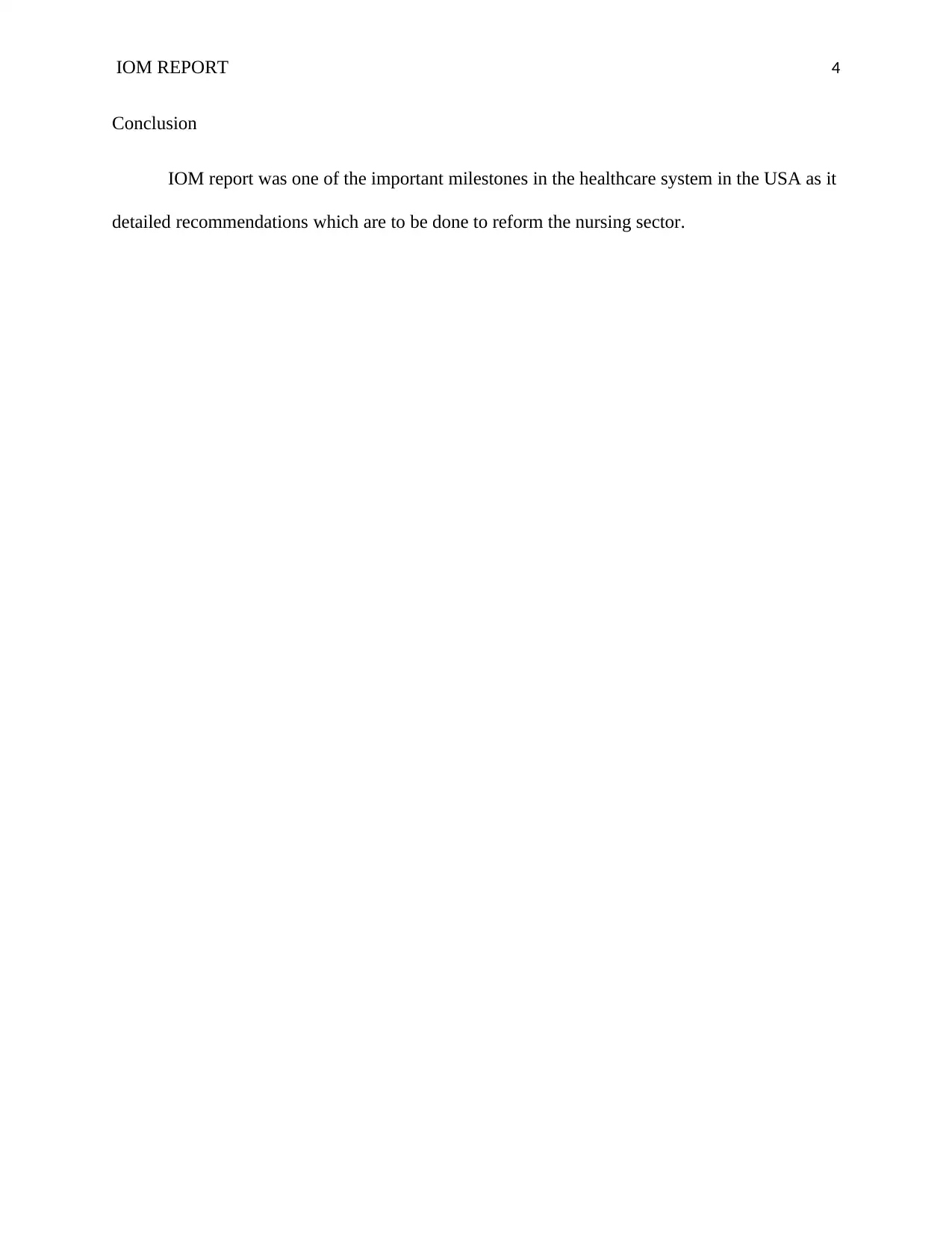
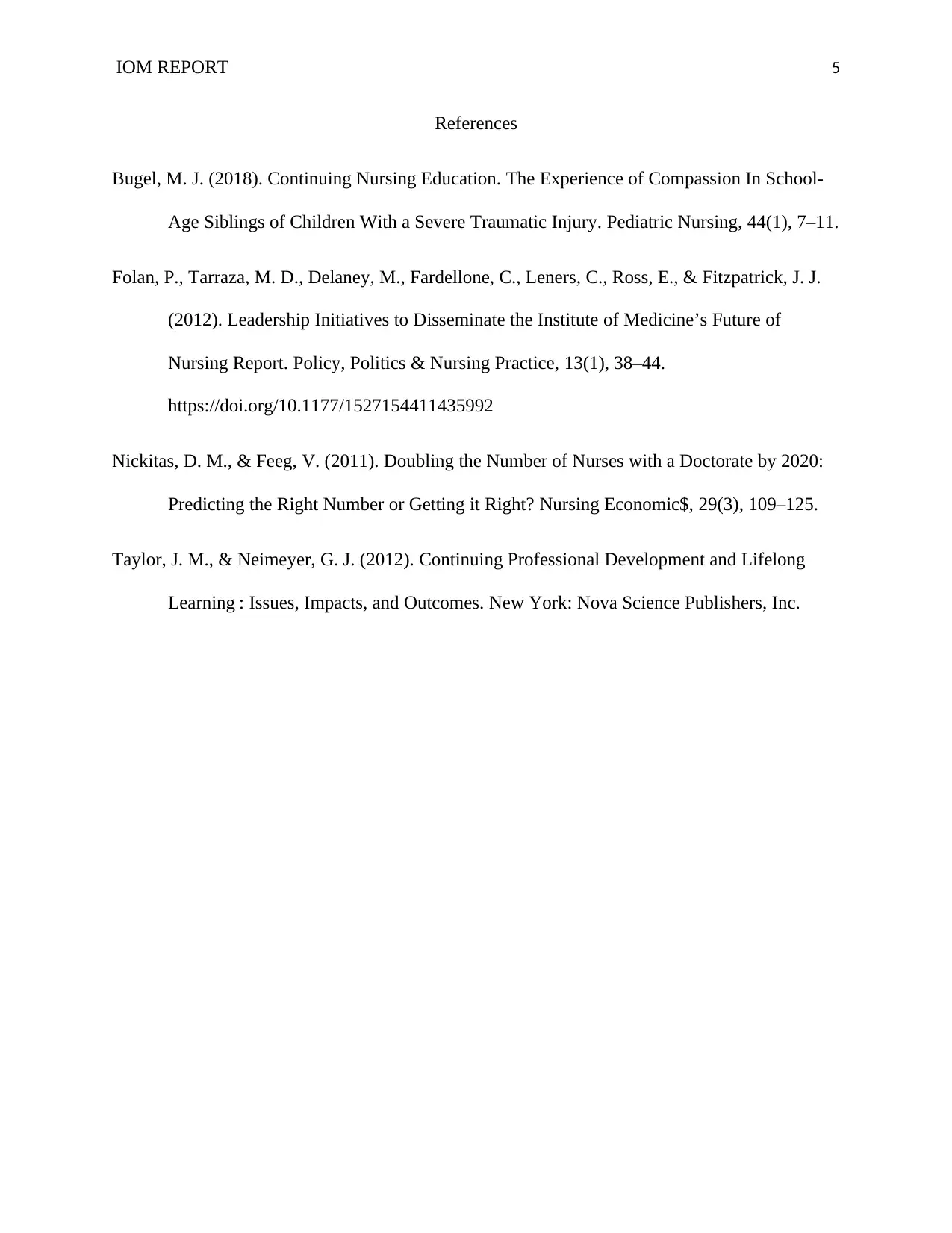






![[object Object]](/_next/static/media/star-bottom.7253800d.svg)